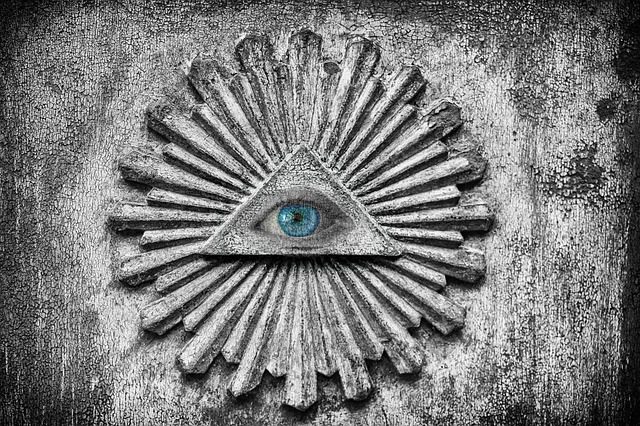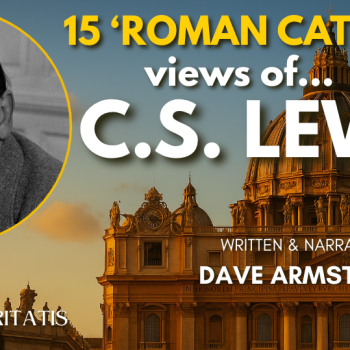
[my much longer critical review of Infiltration on the Amazon book page, has been removed (as of 6-19-19). It was, for over two weeks, listed as the “top review” and the first one listed of over 1000, and also the “top critical review.” It had more than 250 “helpful” votes: more than any other review. It can be read on my blog: My (Censored) Amazon Review of Dr. Marshall’s Infiltration]
*****
Ironically, in 2013, Taylor Marshall defined “radical traditionalists” almost exactly the way I define the group I coined in that same year as “radical Catholic reactionaries” (which now, sadly, includes himself). Karl Keating wrote an article called “Hyperbolic Traditionalists” on the Catholic Answers site (9-1-13). He referenced Taylor Marshall and a blog post of his, dated July 30, 2013, in which he “listed nine attributes that he thought distinguished radical Traditionalists from regular Traditionalists.” He cited Dr. Marshall:
“the outright denial of Vatican II as a valid council,” “disdain for Pope John Paul II and Pope Francis,” and “the belief that Latin Mass Catholics are ‘A Team’ and Novus Ordo Catholics are ‘B Team.’”
My definition for years now has been that the radical Catholic reactionary has four hallmarks: the three that Dr. Marshall mentioned above in 2013, and also antipathy to authentic ecumenism (usually caricaturing it and making out that it is simply liberal indifferentism). Now he himself has espoused and engages in all four things (with the exception of bashing Vatican II but not denying its technical validity). He has become what he was describing then, as a mainstream, legitimate traditionalist.
Accordingly, Infiltration is mere recycled radical Catholic reactionary conspiratorialism: a sort of updated version of The Great Facade (2002; updated with a 2nd edition in 2015: in order to capitalize on the anti-Francis hysteria), by Christopher Ferrara and Thomas Woods.
Increasingly, those who attack Pope Francis are also frequently observed attacking Pope Benedict XVI, Pope St. John Paul II, Pope St. Paul VI, and Pope St. John XXIII, and/or Vatican II, and/or the ordinary form Mass. Dr. Marshall does all of this in his book. He even goes after Ven. Pope Pius XII, too, in some respects. Reactionaries usually reserve their ire and righteous indignation for popes starting with St. John XXIII. To cite just one example of many, of Dr. Marshall’s opposition to Vatican II, he wrote:
Pope Paul VI’s eager enthusiasm for ecumenism is rooted in this document [Nostra aetate] that presupposes that false religions can and do lift the soul to ‘perfect liberation,’ ‘supreme illumination,’ and ‘submission to His inscrutable decrees.’ Pope Leo XIII and Pope Saint Pius X would not have agreed with these theological assertions, . . . his thinking conformed to Freemasonic goals . . .
Dr. Marshall has badly misquoted and misrepresented the conciliar document and pits previous popes against it. It’s not presupposing that everything it mentions with regard to other religions is true. Thus, when it mentions “perfect liberation” and “supreme illumination” it was describing what Buddhists believe about their own religion: not what Catholics think. This is like St. Paul evangelizing the Athenians: “Men of Athens, I perceive that in every way you are very religious. [23] For as I passed along, and observed the objects of your worship, I found also an altar with this inscription, ‘To an unknown god.’ What therefore you worship as unknown, this I proclaim to you” (Acts 17:22-23, RSV).
It doesn’t follow at all that Nostra aetate agrees with every jot and tittle (which would be heretical indifferentism). Nostra aetate makes it quite clear in the same section where it discussed Buddhism, that Catholicism remains the “fullness” of religious truth:
The Catholic Church rejects nothing that is true and holy in these religions. She regards with sincere reverence those ways of conduct and of life, those precepts and teachings which, though differing in many aspects from the ones she holds and sets forth, nonetheless often reflect a ray of that Truth which enlightens all men. Indeed, she proclaims, and ever must proclaim Christ ‘the way, the truth, and the life’ (John 14:6), in whom men may find the fullness of religious life, in whom God has reconciled all things to Himself.
Thus, Nostra aetate did nothing other than what St. Paul did with the Athenians: it acknowledged true aspects while not denying false beliefs, and proclaimed the fullness of Christian revelation and theology.
It’s currently ultra-fashionable among reactionaries to second-guess and cynically speculate about Pope Benedict XVI’s resignation. He used to be their superhero and “darling” but no more! Hence, Dr. Marshall asks: “Why did Pope Benedict XVI resign the papacy on 28 February 2013?” Why should it be a mystery and be talked about as fodder for more conspiracies, when Pope Benedict himself explained exactly why? Why is that not good enough? Is he lying through his teeth? He wrote in his letter of resignation:
After having repeatedly examined my conscience before God, I have come to the certainty that my strengths, due to an advanced age, are no longer suited to an adequate exercise of the Petrine ministry. . . . in order to govern the barque of Saint Peter and proclaim the Gospel, both strength of mind and body are necessary, strength which in the last few months, has deteriorated in me to the extent that I have had to recognize my incapacity to adequately fulfill the ministry entrusted to me.
Case closed. A revered pope has clarified his own personal situation. We need not invoke the Freemasons, the mafia, dissident Churchmen, or some other nefarious or conspiratorial scheme.
I’ve been saying for six years now that traditionalists and reactionaries like Taylor Marshall, are turning more and more against Pope Benedict (and popes since 1958) as time goes on. They used to love him. He was the cat’s meow because he talked about liturgy and criticized the liberal dissidents (as he well should!). But then he resigned. Now (after years of increasing bitterness and resentment) he is being accused (much more explicitly in Dr. Marshall’s many You Tube videos) of not even being doctrinally orthodox. It was Pope Benedict XVI, writing as a high-ranking Cardinal in The Ratzinger Report of 1985, who explained:
It must be stated that Vatican II is upheld by the same authority as Vatican I and the Council of Trent, namely, the Pope and the College of Bishops in communion with him, and that also with regard to its contents, Vatican II is in the strictest continuity with both previous councils and incorporates their texts word for word in decisive points . . .
Whoever accepts Vatican II, as it has clearly expressed and understood itself, at the same time accepts the whole binding tradition of the Catholic Church, particularly also the two previous councils . . . It is likewise impossible to decide in favor of Trent and Vatican I but against Vatican II. Whoever denies Vatican II denies the authority that upholds the other two councils and thereby detaches them from their foundation. And this applies to the so-called ‘traditionalism,’ also in its extreme forms. . . .
To defend the true tradition of the Church today means to defend the Council.
Dr. Marshall, on the other hand, pontificates in his book against Holy Mother Church and Pope Benedict XVI:
Devout Catholics often defend Vatican II by saying that it was ‘hijacked,’ and that is certainly the case, but the question is when, and by whom. As will become clear, Pope John XXIII, and his favorites, Bugnini, Bea, and Montini [Pope St. Paul VI], had already set the optimistic new order, or novus ordo, agenda.
Reactionaries think they are so Catholic: much more than the rest of us poor ignorant peasants (they “get” it; they’re the elite and the cream of the crop: so they constantly tell themselves), but in fact they are steeped in the principles of “do your own thing” / “arbitrarily pick and choose” cafeteria Catholic authority of the very heterodox dissident Catholics whom they despise.
Consistent, observant, pious, devout Catholics always exercise the utmost respect for ecumenical councils and for popes (and that does not necessarily reduce to ultramontanism and “papolatry”). They don’t sit around making videos (with all of 13 years of lived Catholicism) mocking and disparaging both councils and popes, and lecturing all the rest of us, as if they possess magisterial Catholic authority. It’s a disgrace. St. Paul and St. James condemned and warned about this sort of thing:
2 Timothy 4:3-4 (RSV) For the time is coming when people will not endure sound teaching, but having itching ears they will accumulate for themselves teachers to suit their own likings, [4] and will turn away from listening to the truth and wander into myths.
St. Paul showed more respect for the Jewish high priest who was opposing Christianity, than reactionaries do to popes:
Acts 23:1-5 And Paul, looking intently at the council, said, “Brethren, I have lived before God in all good conscience up to this day.” [2] And the high priest Anani’as commanded those who stood by him to strike him on the mouth. [3] Then Paul said to him, “God shall strike you, you whitewashed wall! Are you sitting to judge me according to the law, and yet contrary to the law you order me to be struck?” [4] Those who stood by said, “Would you revile God’s high priest?” [5] And Paul said, “I did not know, brethren, that he was the high priest; for it is written, `You shall not speak evil of a ruler of your people.'”
It comes down to what one believes — in faith, by God’s grace — about ecumenical councils. It’s a matter of faith. Traditionally, Catholics have believed that they are guided by the Holy Spirit. They possess infallible authority if they authoritatively clarify long-held doctrines, in agreement with the pope.
There have always been scoundrels and palace intrigue at every council, because men are sinners. And there has been uproar and confusion after every council, too. If people knew their Church history, they would know this, and the current problems would be put in much better perspective. It’s nothing new. It’s not the end of the Church as we know and love her. St. Paul was struggling with the Corinthian and Galatian churches (even including sexual sin). There is nothing new under the sun. So, for example, Joseph Francis Kelly writes:
This initial ecumenical council foreshadowed elements of many others, one of which was a confused reaction following the council. . . . historically speaking, after councils some participants often have second thoughts about what happened or are surprised at the reaction of others to the council’s work. (The Ecumenical Councils of the Catholic Church: A History, Liturgical Press, 2009, p. 25)
Have reactionaries never heard of the Old Catholics and their rejection of papal infallibility? That was a schism in the Church due to Vatican I’s definition of papal infallibility. They dissed the council, just as Taylor Marshall is now doing with Vatican II.
This is why indefectibility is such a glorious guarantee. It overcomes the attempts of men to wreck things and destroy the faith. Taylor Marshall in this book can only see evil men, plots, and (supposedly successful) wicked conspiracies. We are looking at it with the eyes of faith, and see a God Who is much bigger than all that, who can turn around even the worst of situations. Chesterton stated: “at least five times in history the Church has gone to the dogs, but in each case, the dog died.”
Vatican II is completely orthodox and a wonderful exposition of the Catholic faith. It’s an ecumenical council. Catholics believe that doctrine continues to develop and is ever more understood. Blessed Cardinal Newman classically explained that in 1845 in his Essay on the Development of Christian Doctrine (key in my own conversion in 1990). Vatican II is part of that. This is why we love it or should love it. It is the fully developed Mind of the Church in our time, along with the papal encyclicals of the last 60 years, including St. Paul VI’s heroic Humanae Vitae (1968) and St. John Paul II’s magnificent Evangelium Vitae (1995). Taylor Marshall seems to have a very limited understanding of these things.
The twisting of a thing is completely different from the thing itself (throwing the baby out with the bath water). The Bible itself is twisted and distorted and abused all the time. Does it follow that it is a bad thing, to be rejected? Obviously not. Likewise with Vatican II.
Lastly, I agree that many groups have tried to infiltrate the Church. The dissident modernists have been trying to wreck Catholicism since the French Revolution. My mentor, Servant of God Fr. John A. Hardon, S. J. (who received me into the Church and enthusiastically endorsed my first book, A Biblical Defense of Catholicism) often said that modernism is the culmination of all heresies, and that the modernist crisis is the greatest in the history of the Church. I agree 100%!
My response to that, though, is that the Church is led and protected by the Holy Spirit and is indefectible; therefore, all such attempts (conspiratorial or otherwise) fail in the long run. Reactionaryism is the counsel of despair. The orthodox Catholic is always hopeful and believes that God is in control and that all things work together for good (Romans 8:28).
Conspiratorialism is a dead-end street, an intellectually naive and foolish interpretation of very complex events and ideas. Much better is traditional Catholic grace-empowered faith: particularly in the indefectibility of the Church, God’s providence, and the scriptural knowledge that sinners are always present in the Church (parable of the wheat and tares, seven churches of Revelation, etc.).
In this vision and way of life, we know and believe that God is always in control and protects Holy Mother Church despite our repeated attempts to bring it down to the dirt of human sin and nefarious aspirations for power, rebellion against God, and all the rest.
***
Photo credit: knollzw (5-31-18) [Pixabay / Pixabay License]
***













